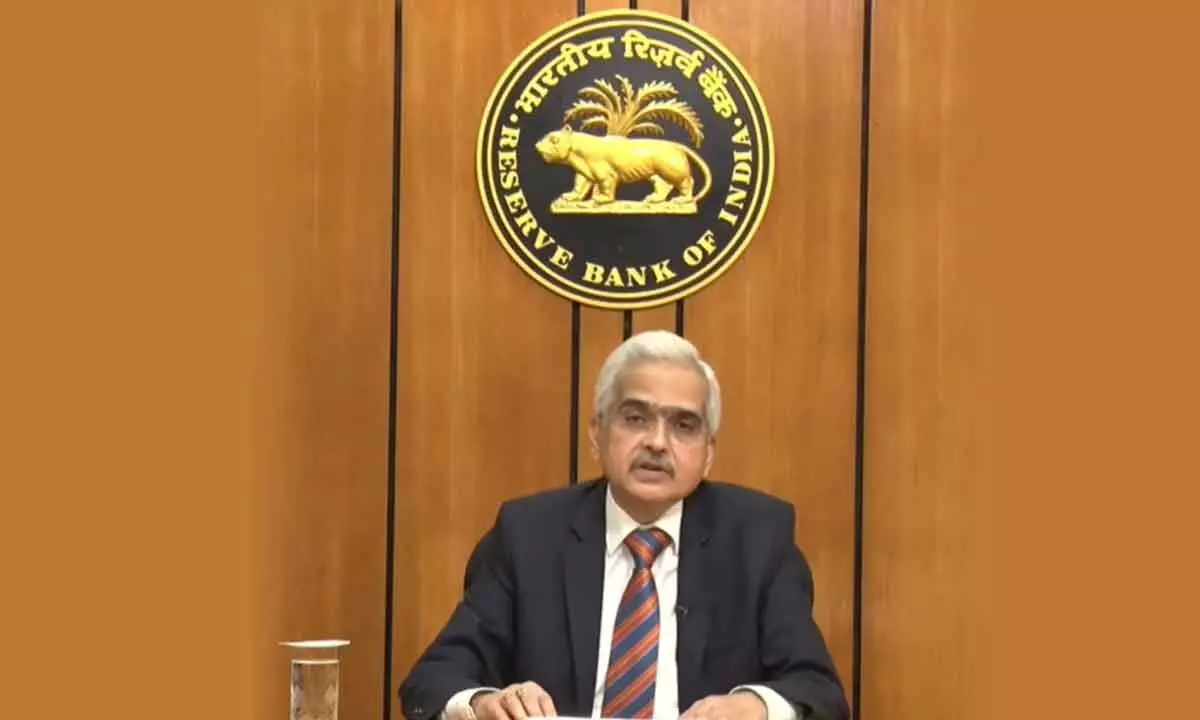EMIs to increase as RBI hikes repo rate

RBI Governor Shaktikanta Das
RBI hiked its key interest rate by 40 bps in a surprise move on Wednesday in an effort to tame inflation that has remained stubbornly above target in recent months.
Mumbai: Home, auto and other loan EMIs are likely to increase after the Reserve Bank of India (RBI) hiked its key interest rate by 40 bps in a surprise move on Wednesday in an effort to tame inflation that has remained stubbornly above target in recent months.
The increase in repo rate - the rate at which RBI lends to commercial banks - to 4.40 per cent from a record low of 4 per cent is the first since August 2018 as well as the first instance of the RBI Governor-headed monetary policy committee (MPC) holding an unscheduled meeting for raising interest rates.
The RBI also hike the cash reserve ratio (CRR) by 50 basis points to 4.5 per cent, which will now require banks to park more money with the central bank and leave them with less to loan to consumers. This would drain Rs 87,000 crore of liquidity from the banking system, RBI Governor Shaktikanta Das said in a video address announcing the rate hike decision.
He, however, did not mention anything about the reverse repo rate and hence it remains the same at 3.35 per cent. The standing deposit facility rate is now at 4.15 per cent while the marginal standing facility rate and bank rate stand at 4.65 per cent. The MPC retained its accommodative monetary policy stance - meaning it can cut interest rates to support growth - at a time when globally inflation is rising alarmingly.
Persistent inflation pressures are becoming more acute, particularly on food, Das said, adding that there is a risk if prices stay at this level for "too long" and expectations become unanchored. "Inflation must be tamed in order to keep the Indian economy resolute on its course to sustained and inclusive growth," he said.
Increases in fuel and food prices, exacerbated by the war in Ukraine and sustained pandemic-related supply chain disruptions, have been above the RBI comfort zone of 2-6 per cent for three months in a row. Headline inflation in March rose to a 17-month high of 6.95 per cent and it may be above the target band in April too. The MPC is scheduled to meet on June 8 and analysts expect it to again raise the repo rate by at least 25 bps.
"The MPC judged that the inflation outlook warrants an appropriate and timely response through resolute and calibrated steps to ensure that second-round effects of supply-side shocks on the economy are contained and long-term inflation expectations are kept firmly anchored," Das said.
The governor, however, added that the monetary stance remains accommodative and actions will remain calibrated. "In the MPC's view, monetary policy response at this juncture would help to preserve macro-financial stability amidst increasing volatility in financial markets," he added.
As the economy normalises, there is a rising concern about demand growing at a pace faster than supply, thereby, leading to demand-pull inflation. Besides, global inflation is also a concern. High commodity, edible oil, metal, and fertiliser prices due to the Russia-Ukraine crisis are adding to production costs. Both cost-push and demand-pull inflation drivers have been indicating that the RBI will have to act on price pressure worries.
The central bank had reaffirmed its accommodative stance in February -- a step criticised by some economists as too benign on the risk of rising prices. The RBI last month said that it would begin prioritising inflation over supporting growth. "This is precisely in line with the stance of withdrawal of accommodation", which was announced at the last MPC meeting in April, Das said.








